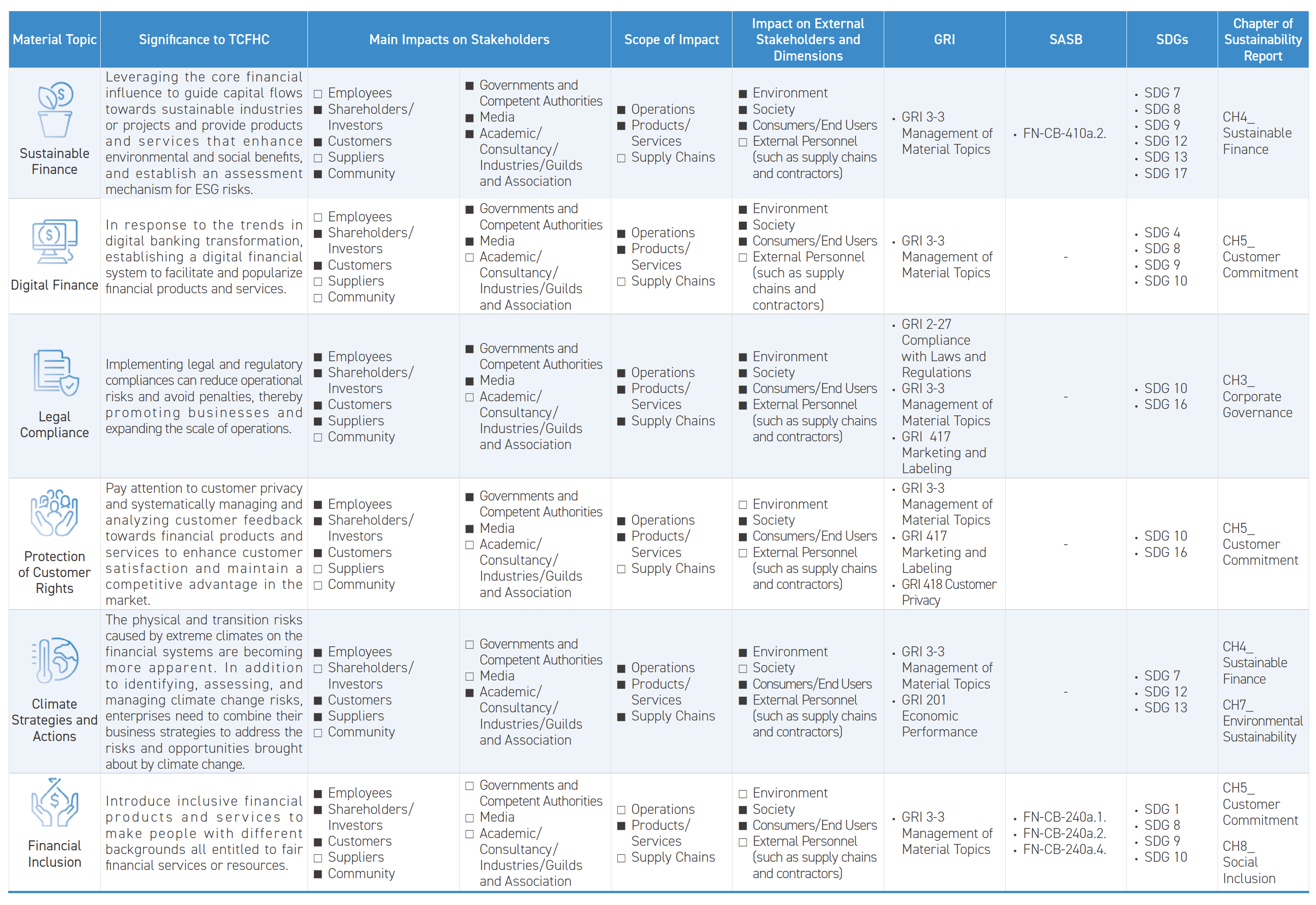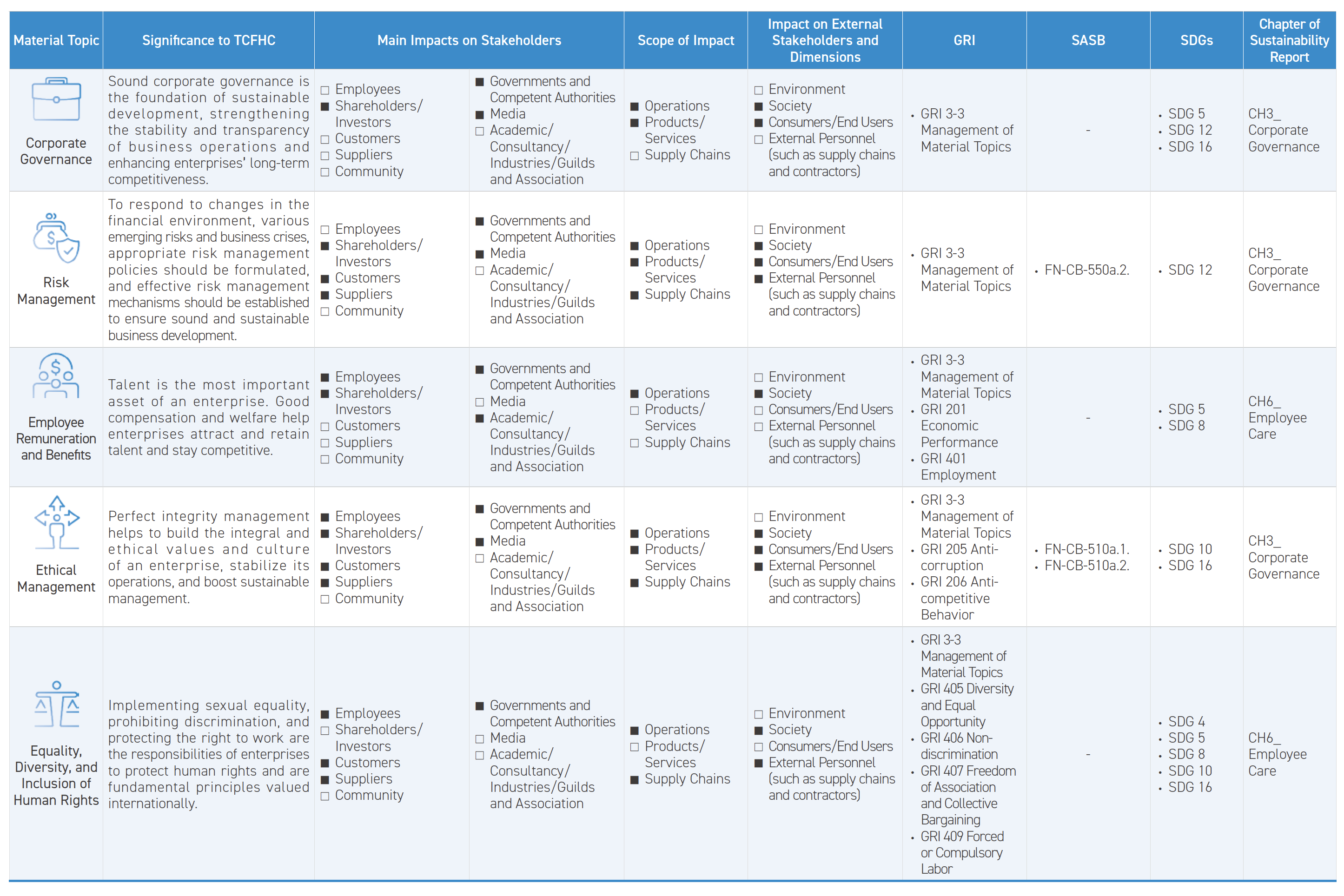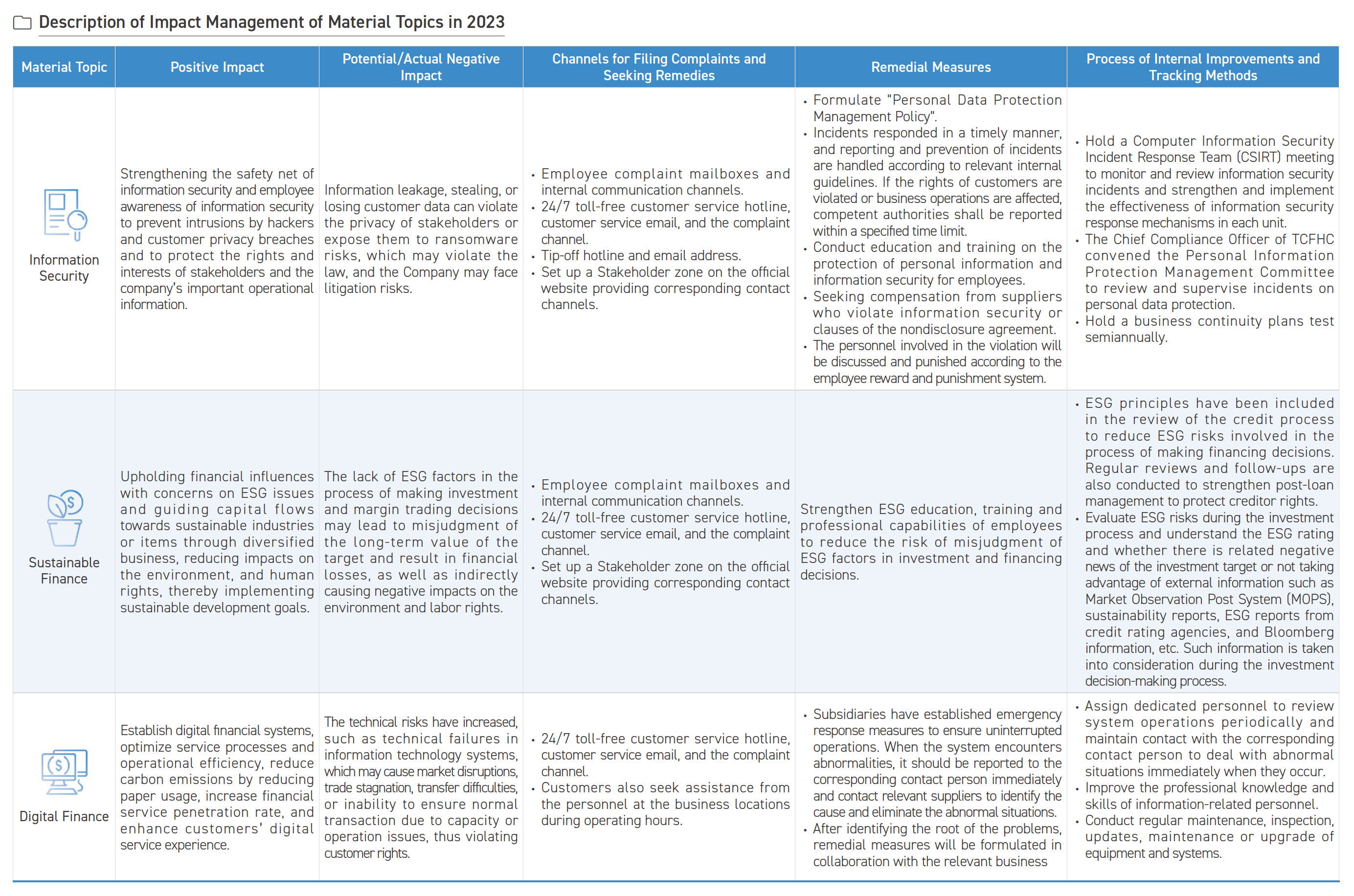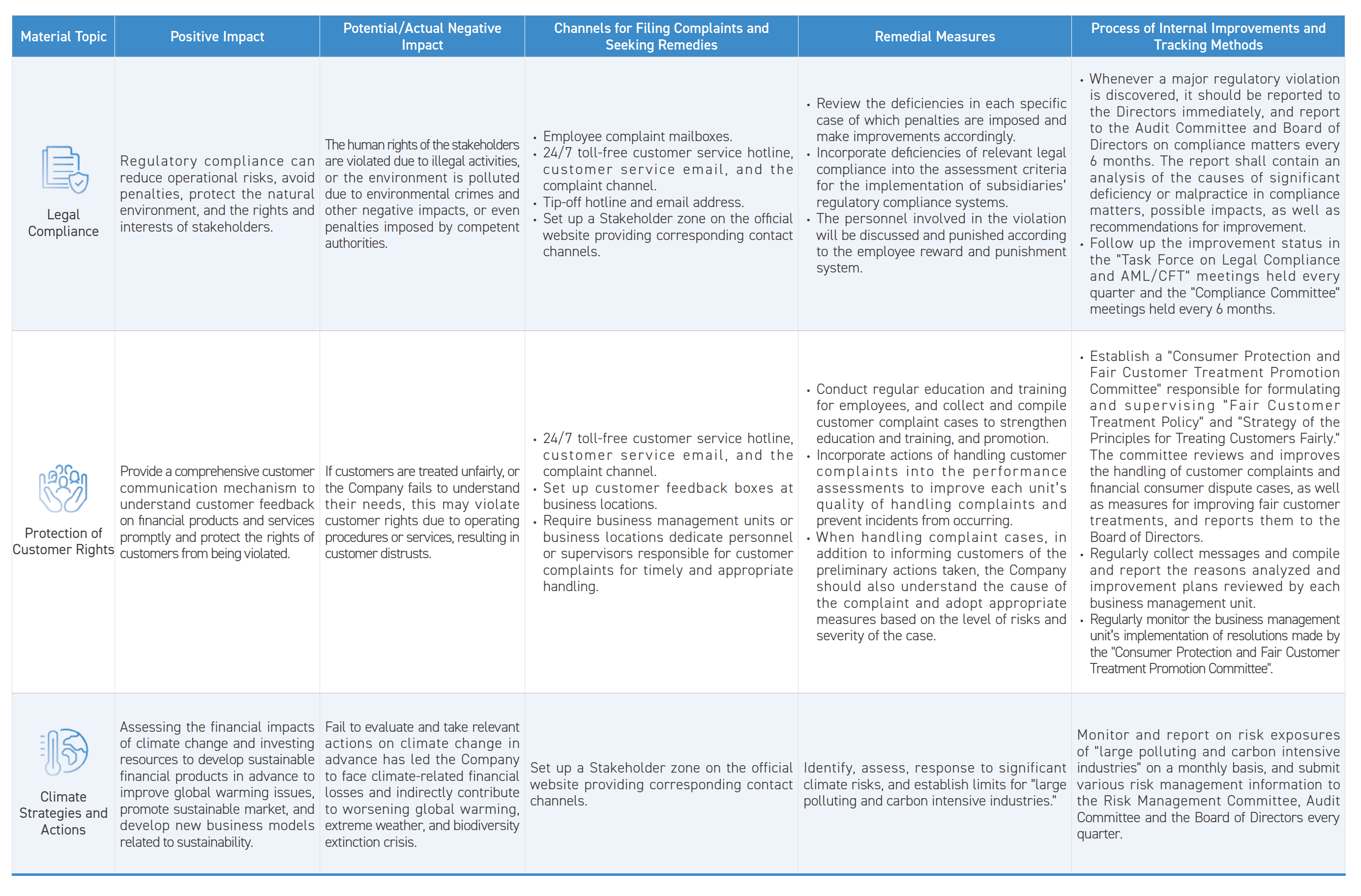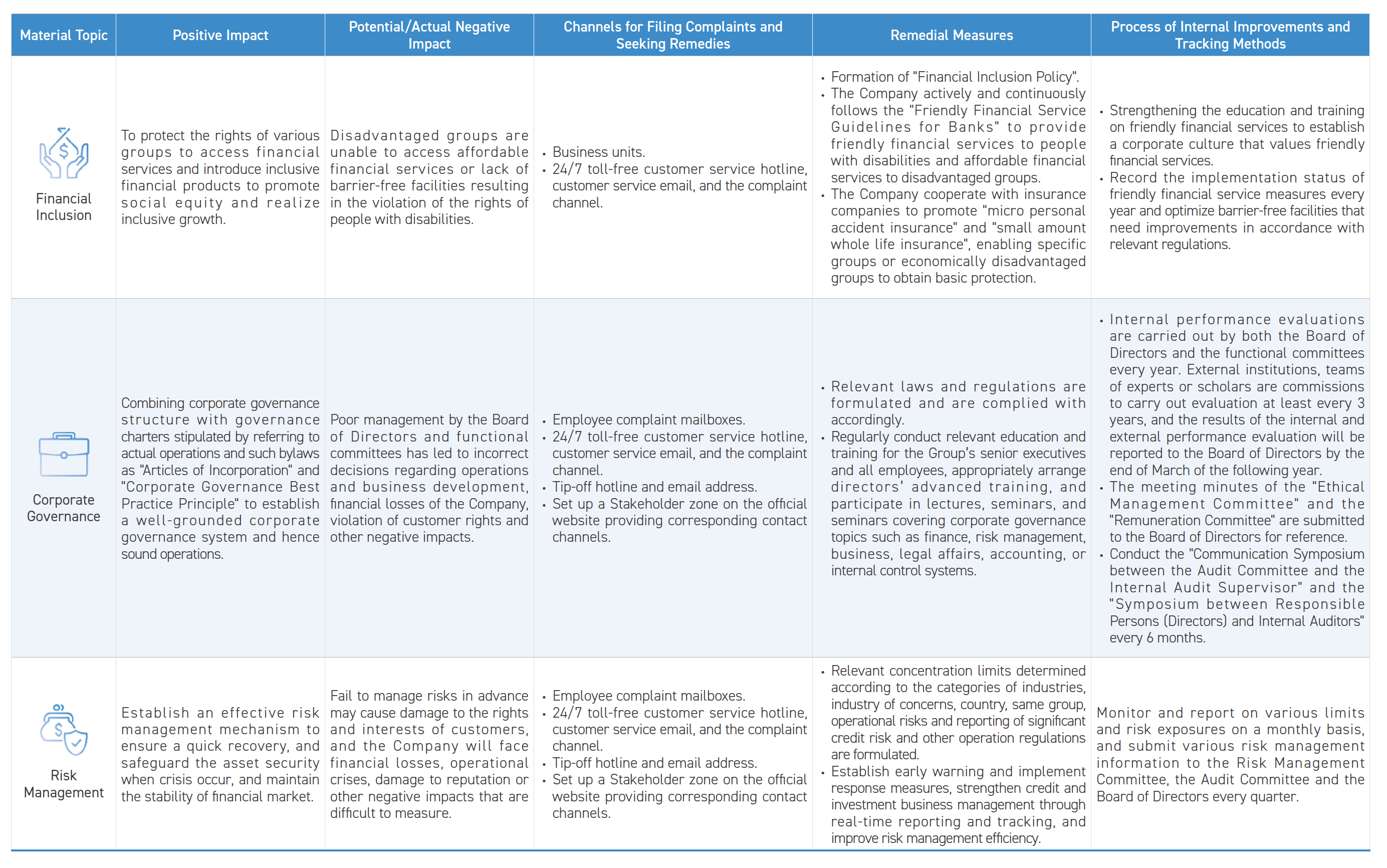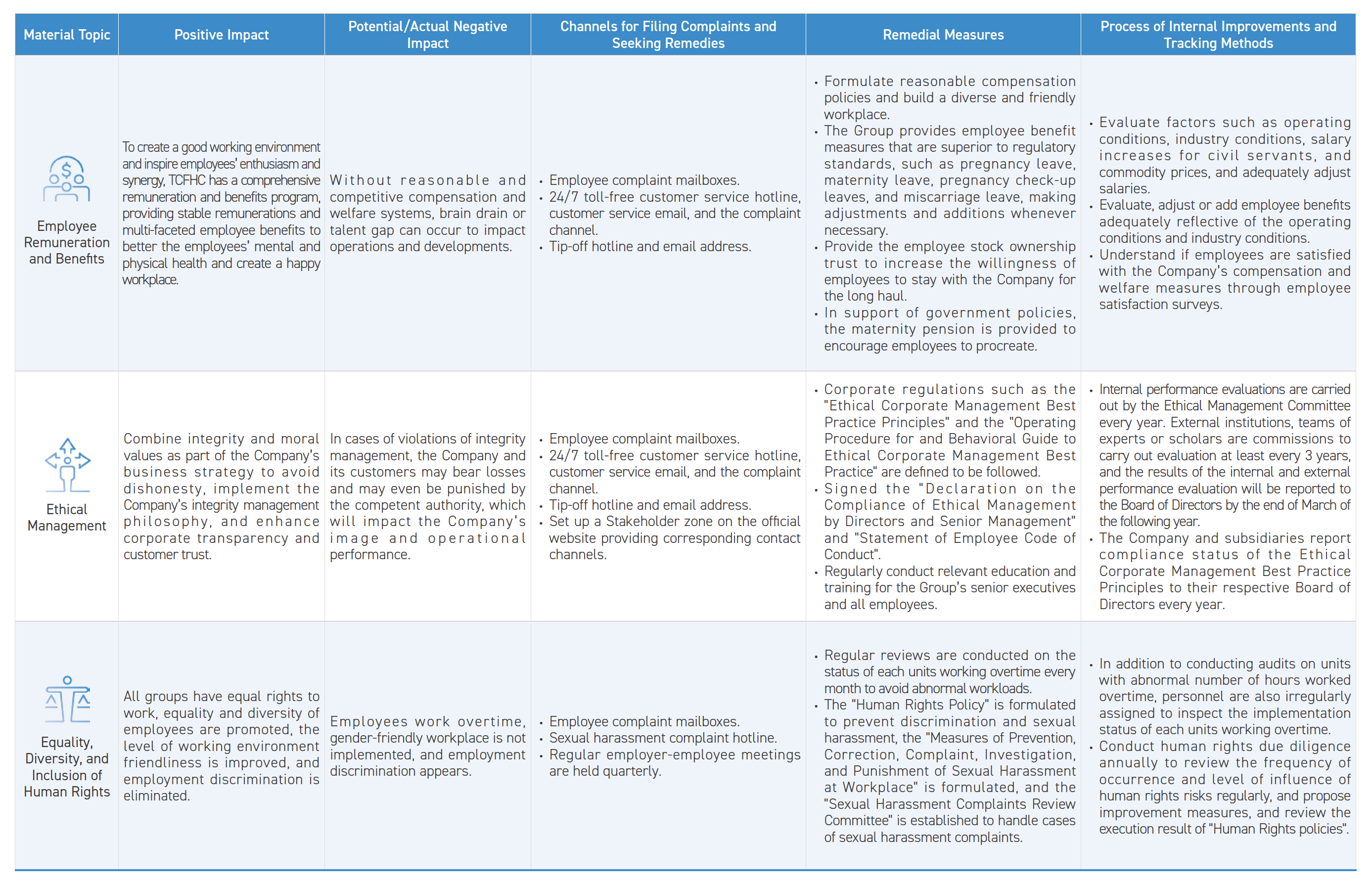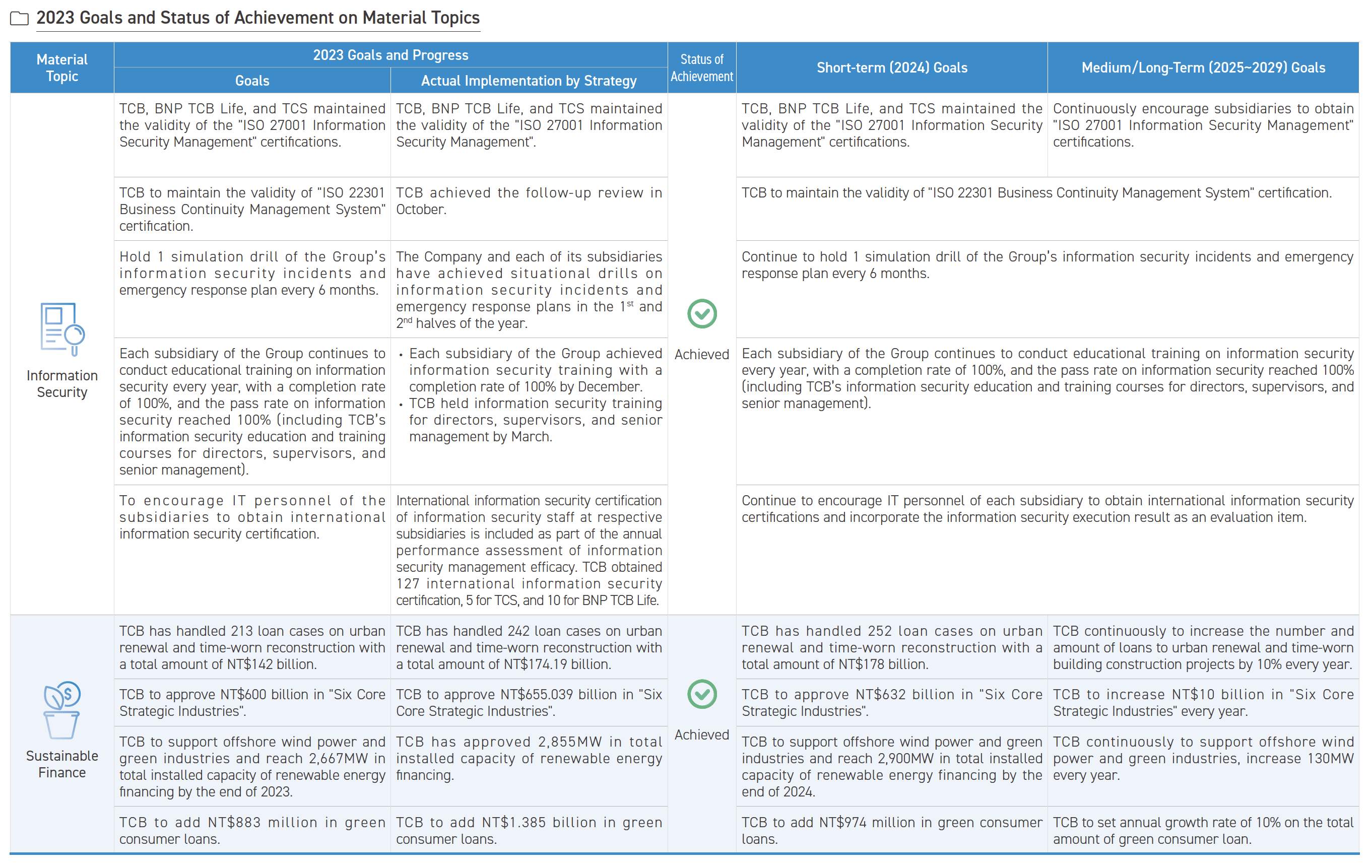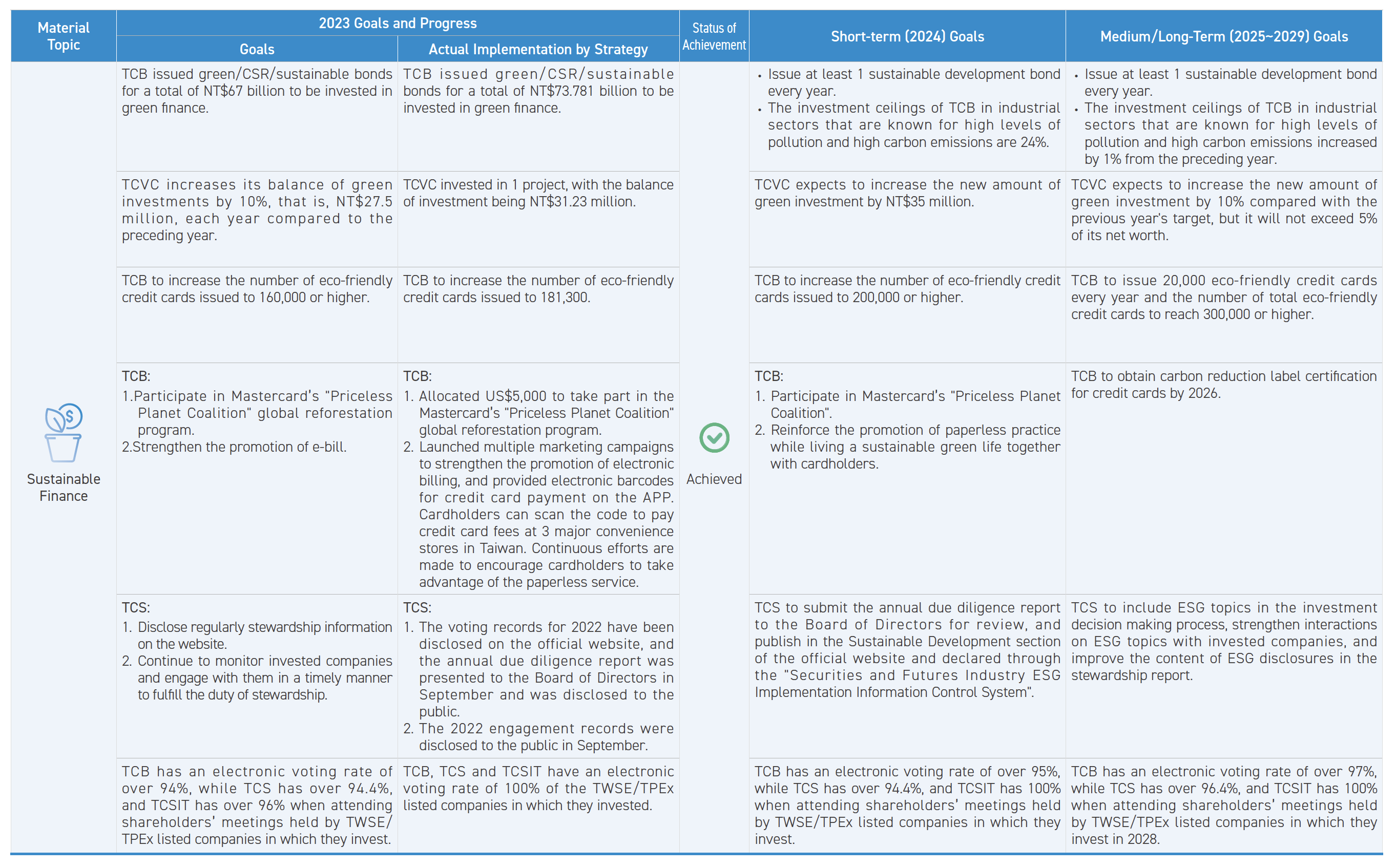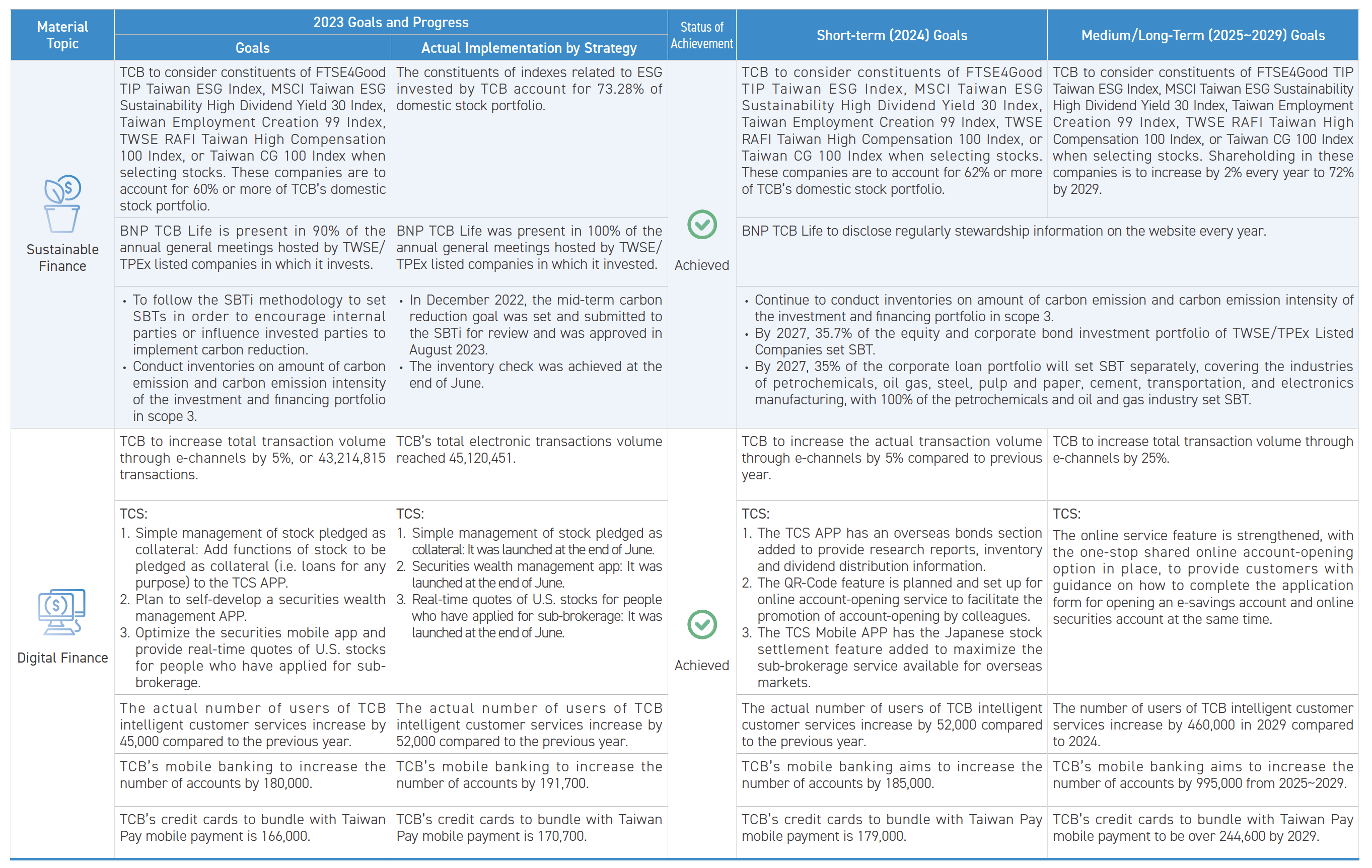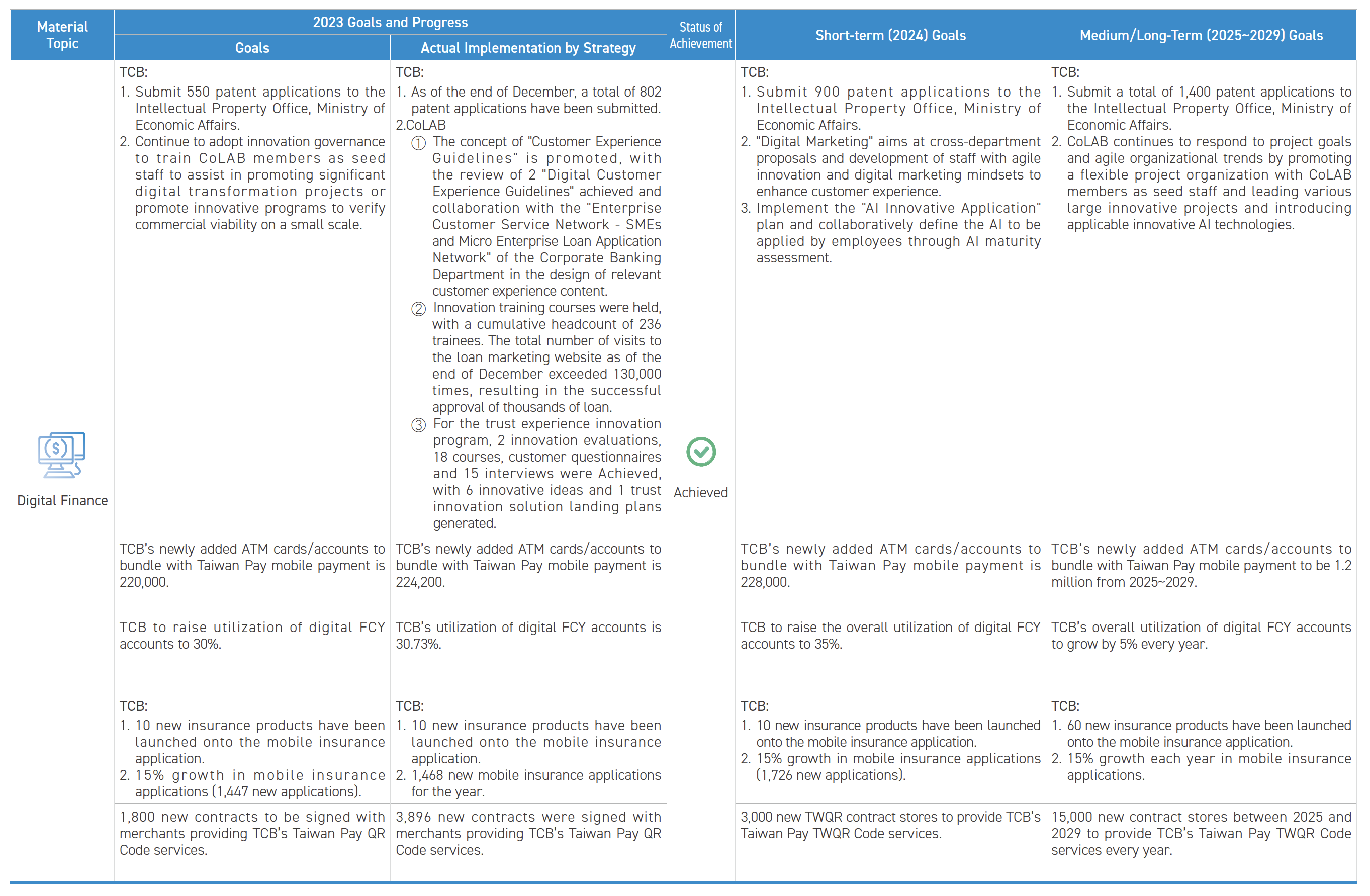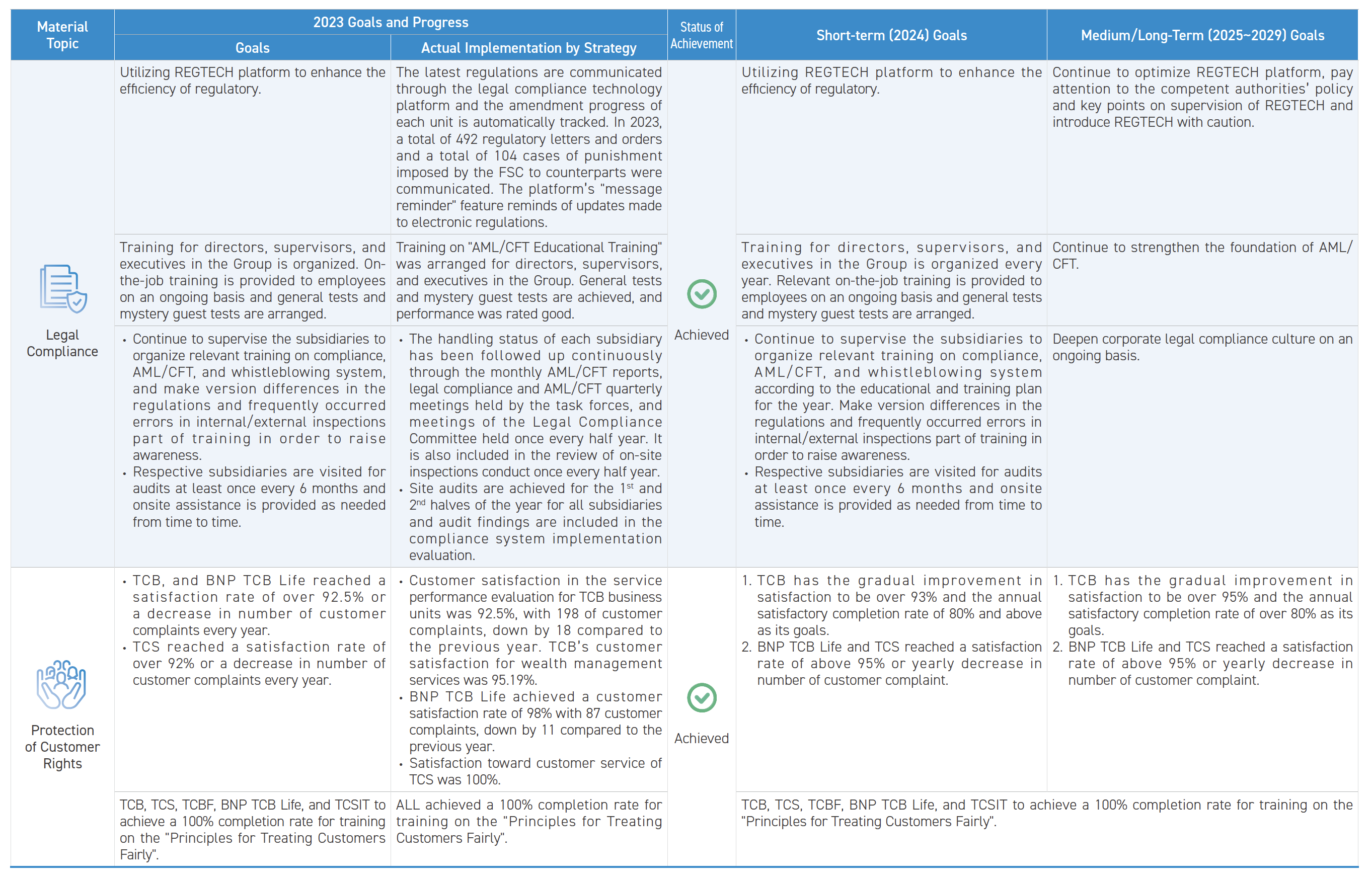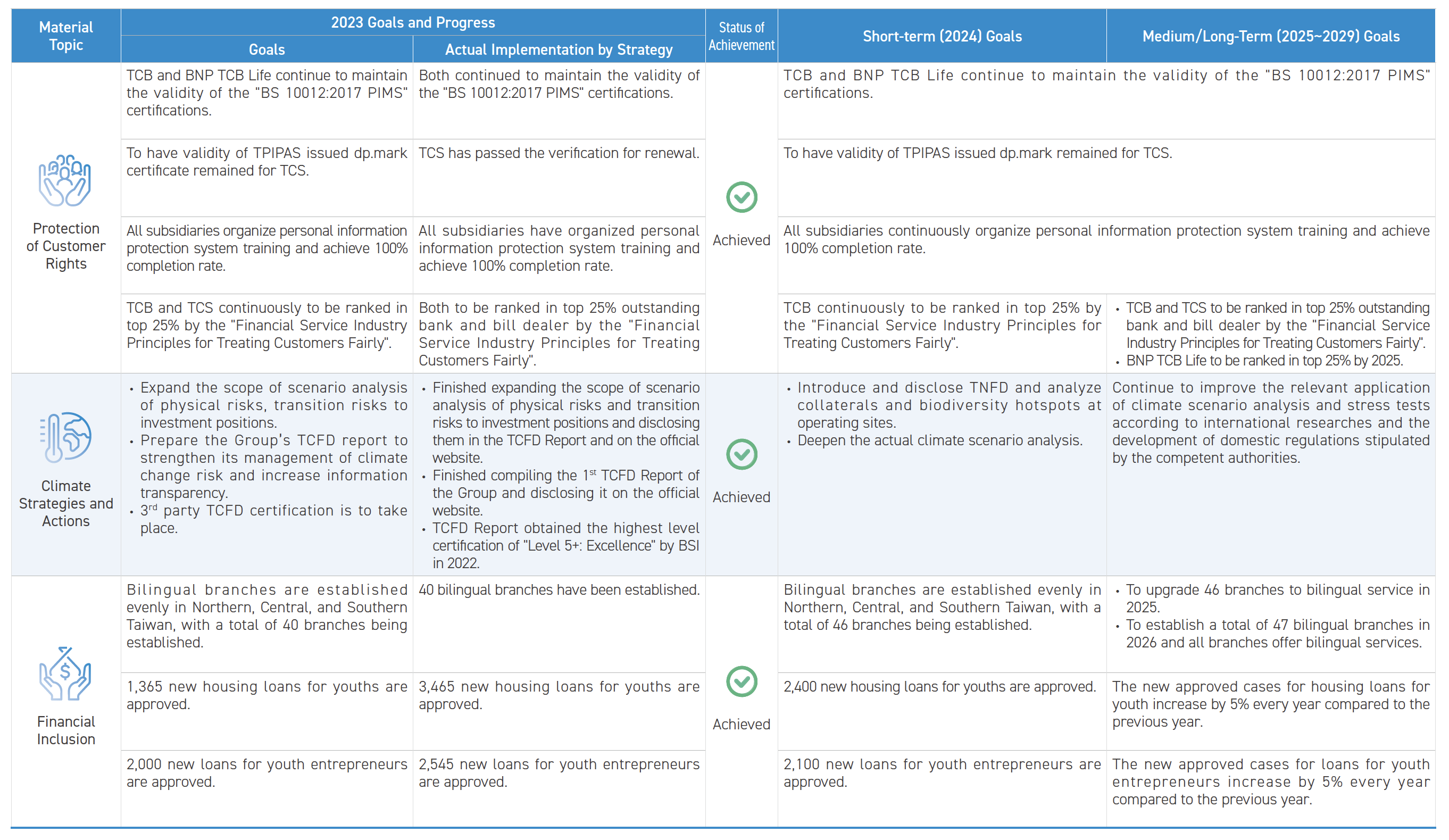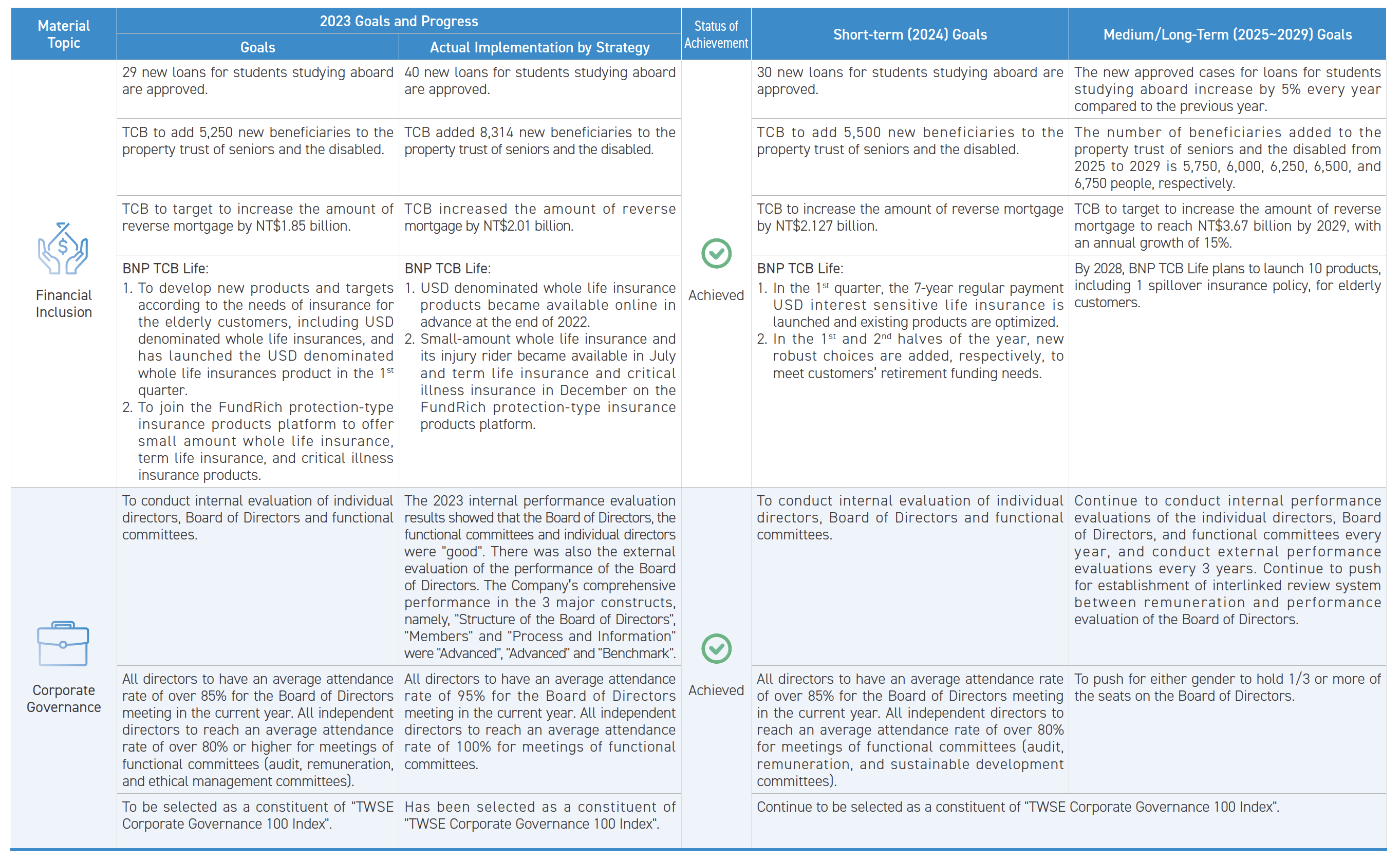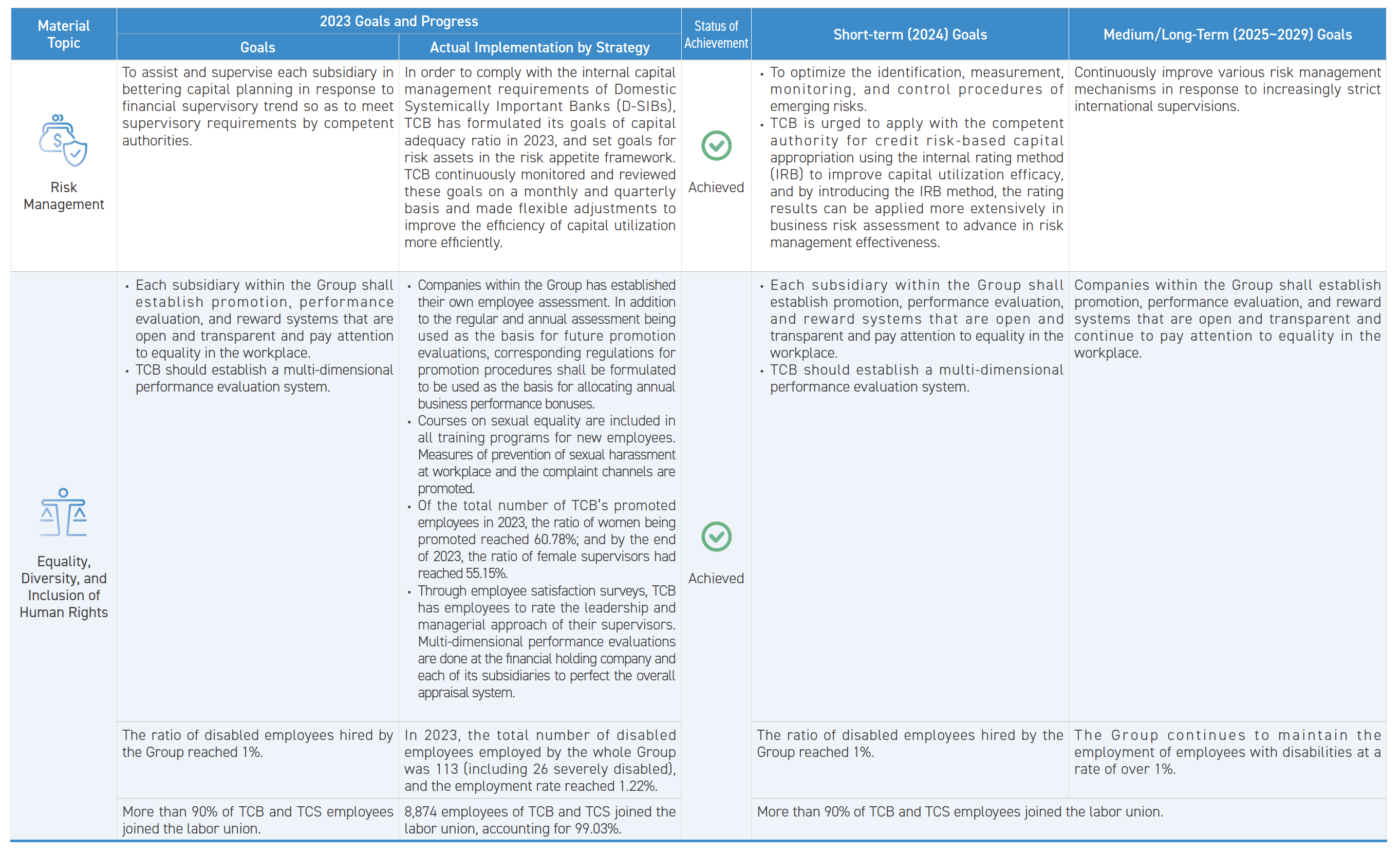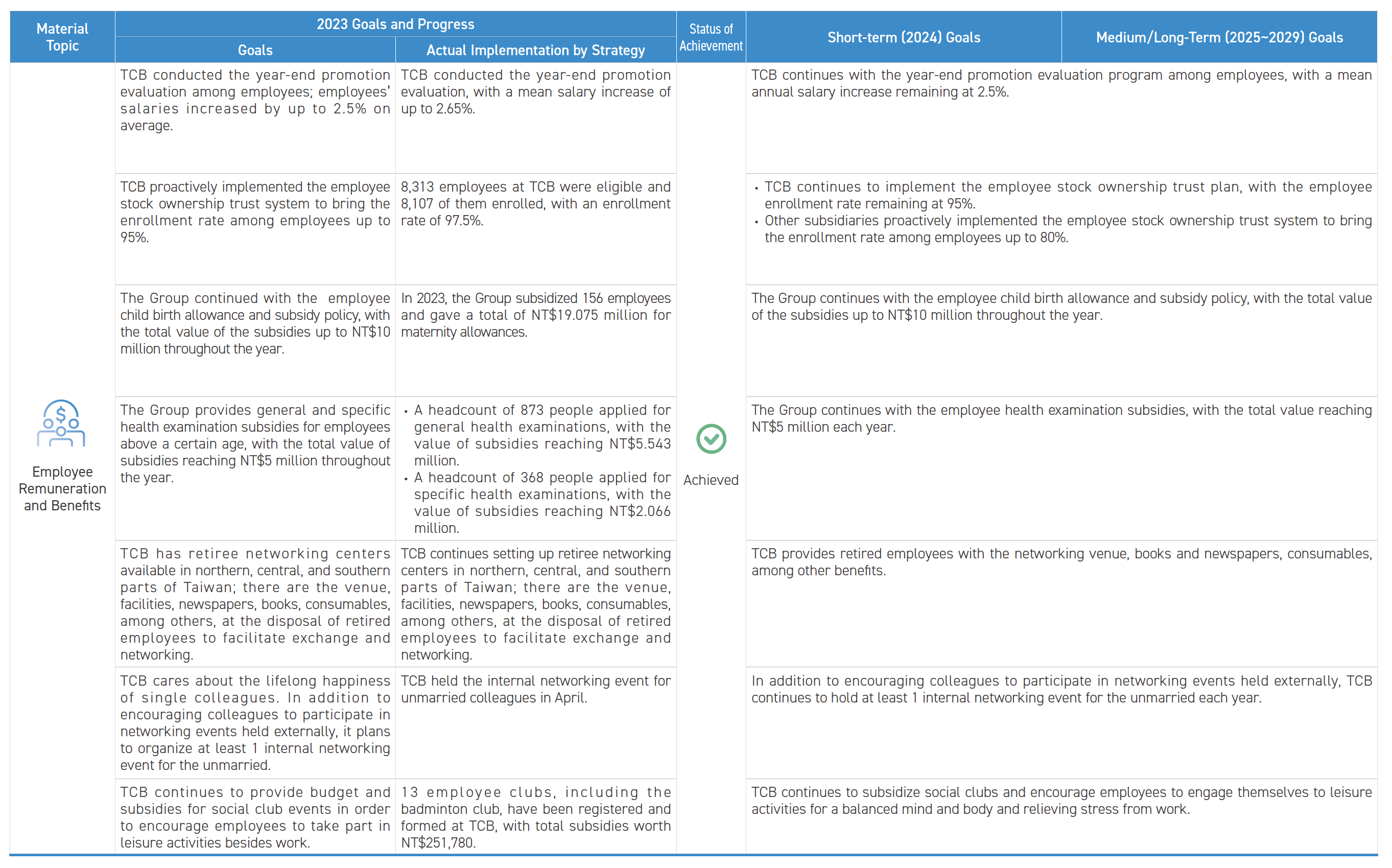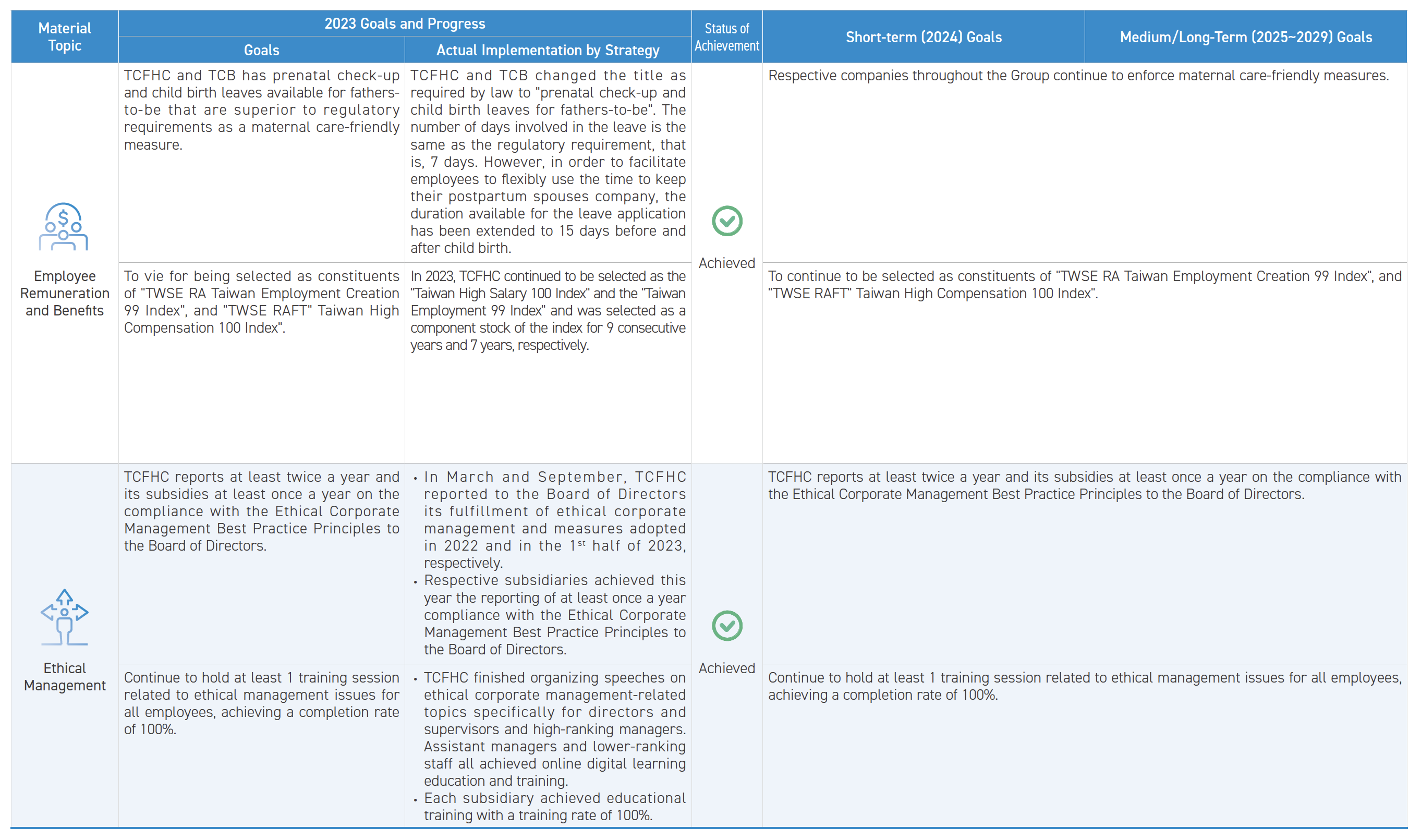Communications with Stakeholders
The primary step for TCFHC to pursue sustainable development is to identify internal and external stakeholders, further understand their issues of concerns, and facilitate a harmonious development on aspects of environment, finance, and society. The Company has set up a "Stakeholder" section on the "Sustainable Development" webpage. Through transparent and smooth communication channels, the Company collects stakeholders’ concerns about sustainable topics, discloses relevant information in this report, and responds promptly by taking appropriate response measures. In 2023, a total of 108 events were held, with 12,252 participants (59 events by the primary subsidiary TCB, with 9,252 participants), to help stakeholders understand the SDGs and Taiwan’s sustainable development policies.
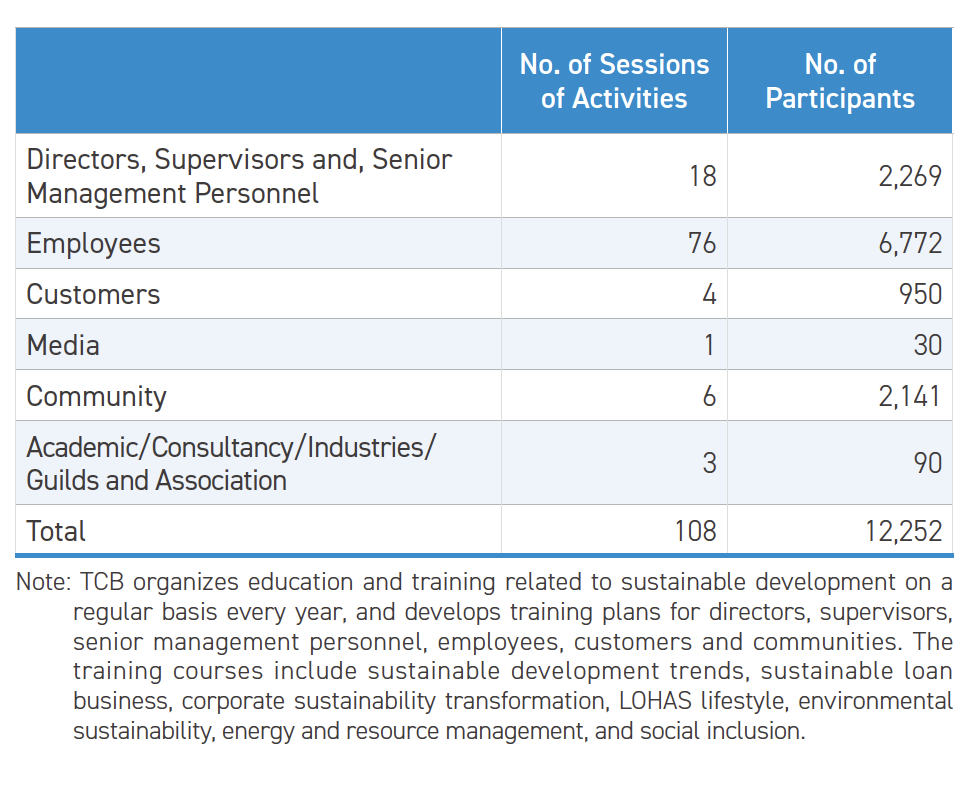
Based on the 5 major principles, which are dependency, responsibility, influence, representative, and diversity of the AA1000 Stakeholder Engagement Standard (AA1000 SES), TCFHC has identified 8 major categories of stakeholders who are most influential and relevant to TCFHC’s operations, namely, employees, shareholders/investors, customers, suppliers, community, governments and competent authorities, media, academic/consultancy/industries/guilds, and associations.
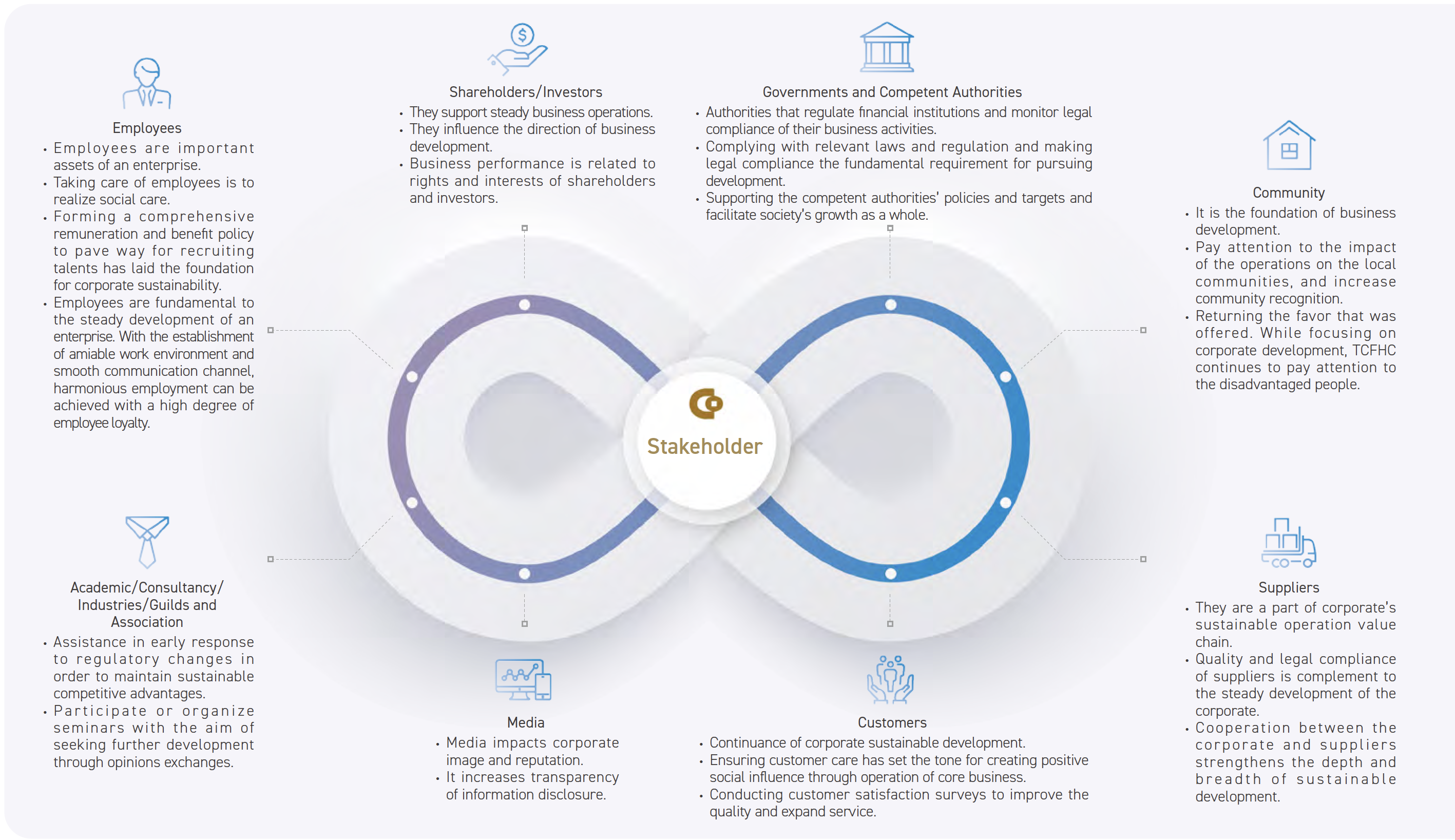
TCFHC established engagement means and channels for each stakeholder category in order to ensure continuous communication and collect their opinions and feedback. Actual communications with stakeholders are also presented to the Board of Directors every year.
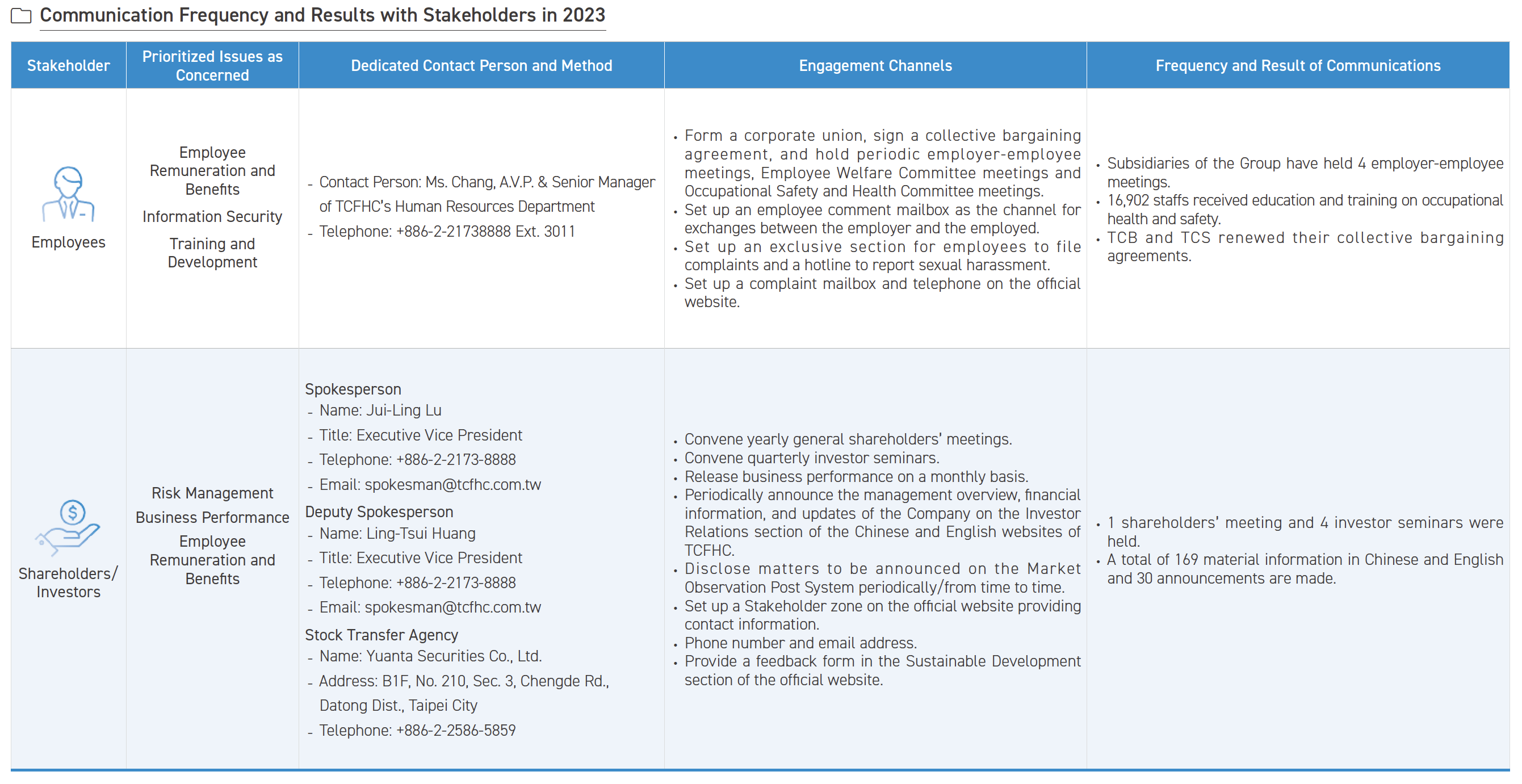
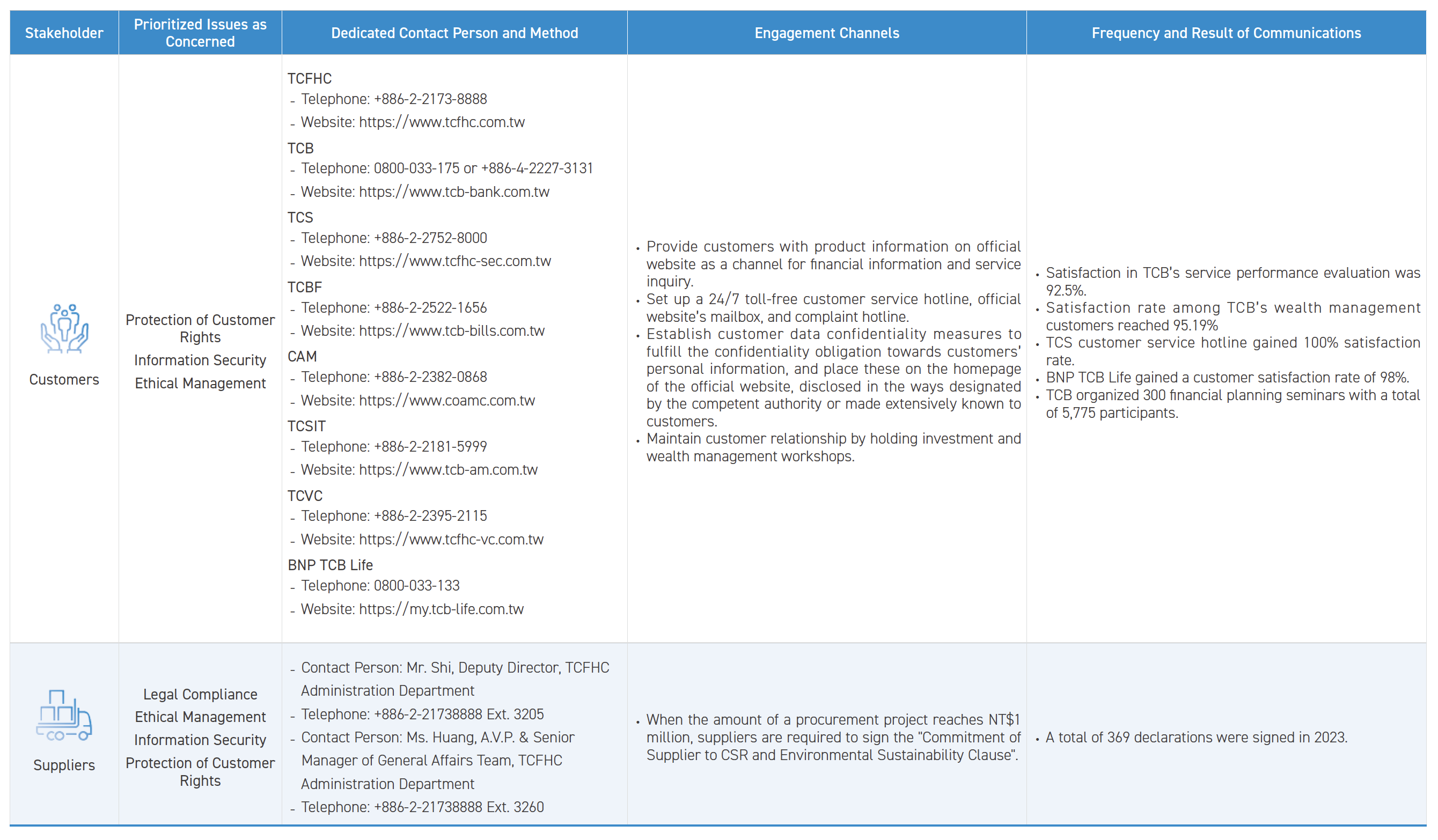
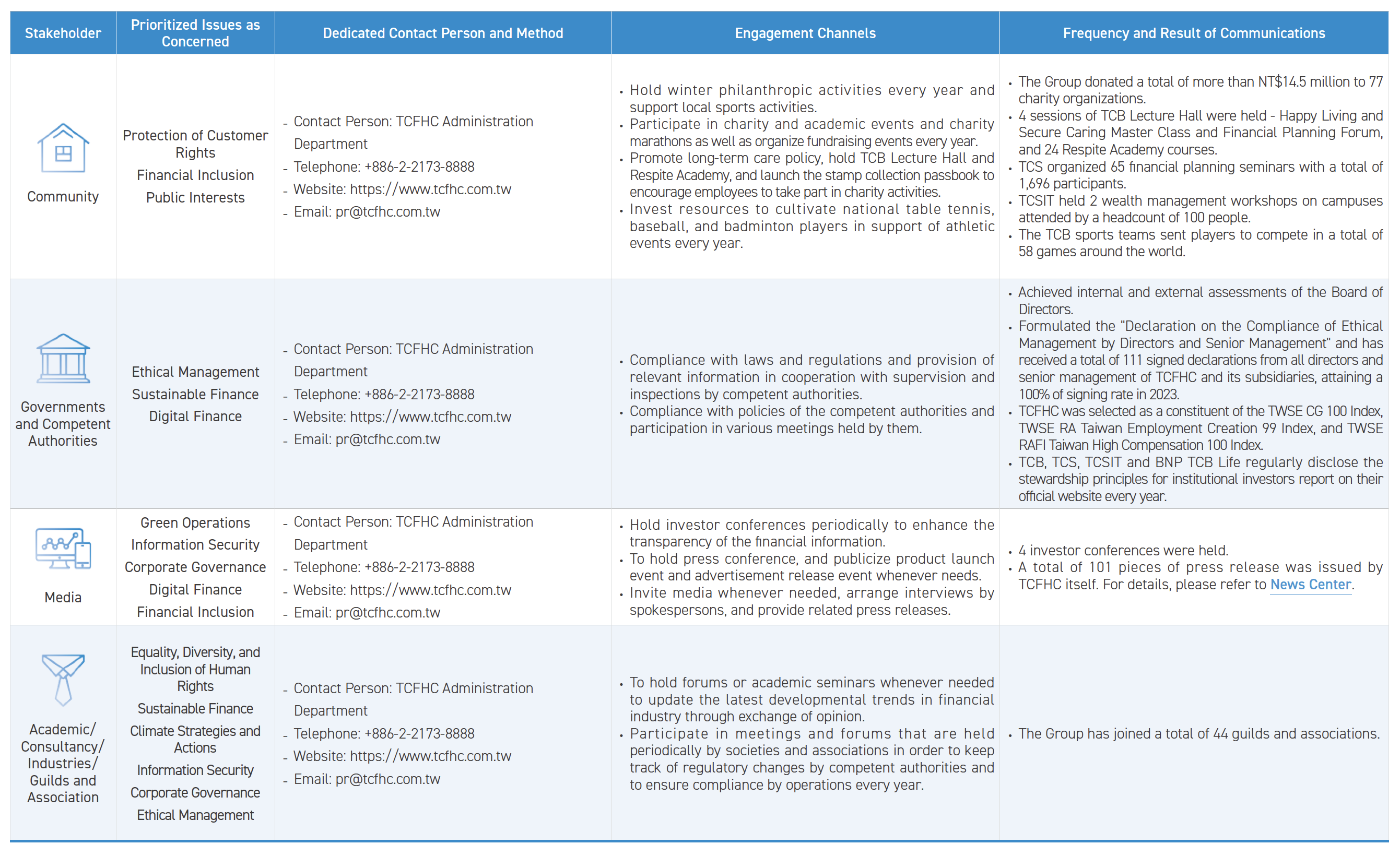
Defining Material Topics
TCFHC follows the 2021 version of the GRI Standards for sustainability and refers to the development trend of domestic and overseas financial industries and sustainability issues concerned by well-known enterprises every year. At the same time, the Company evaluates its operating status based on the 4 principles, which are sustainability, materiality, completeness, and stakeholder inclusiveness. TCFHC invites the 6 major executive task forces members of the Sustainable Development Committee to discuss and compile suggestions from external stakeholders. TCFHC takes the double materiality in financial and non-financial reporting into account to evaluate the positive and negative impacts of sustainability issues on the economy, environment, and population (including human rights) and use it as the basis for identifying material topics for 2023 and responds to SDGs. In addition, the evaluation results of the material topics will be included in the operational assessment items of each subsidiary to integrate material topics into Enterprise Risk Management (ERM).
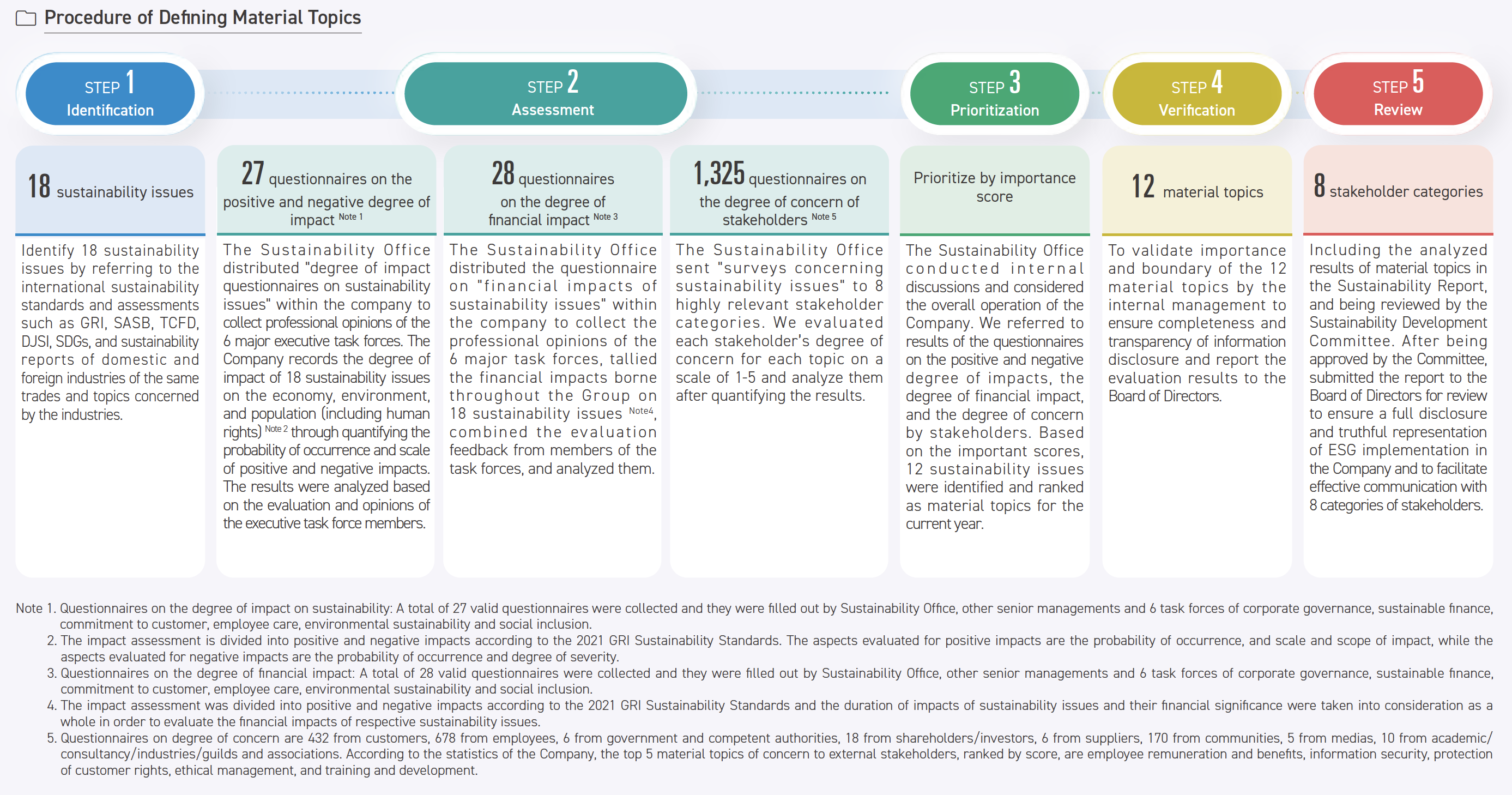
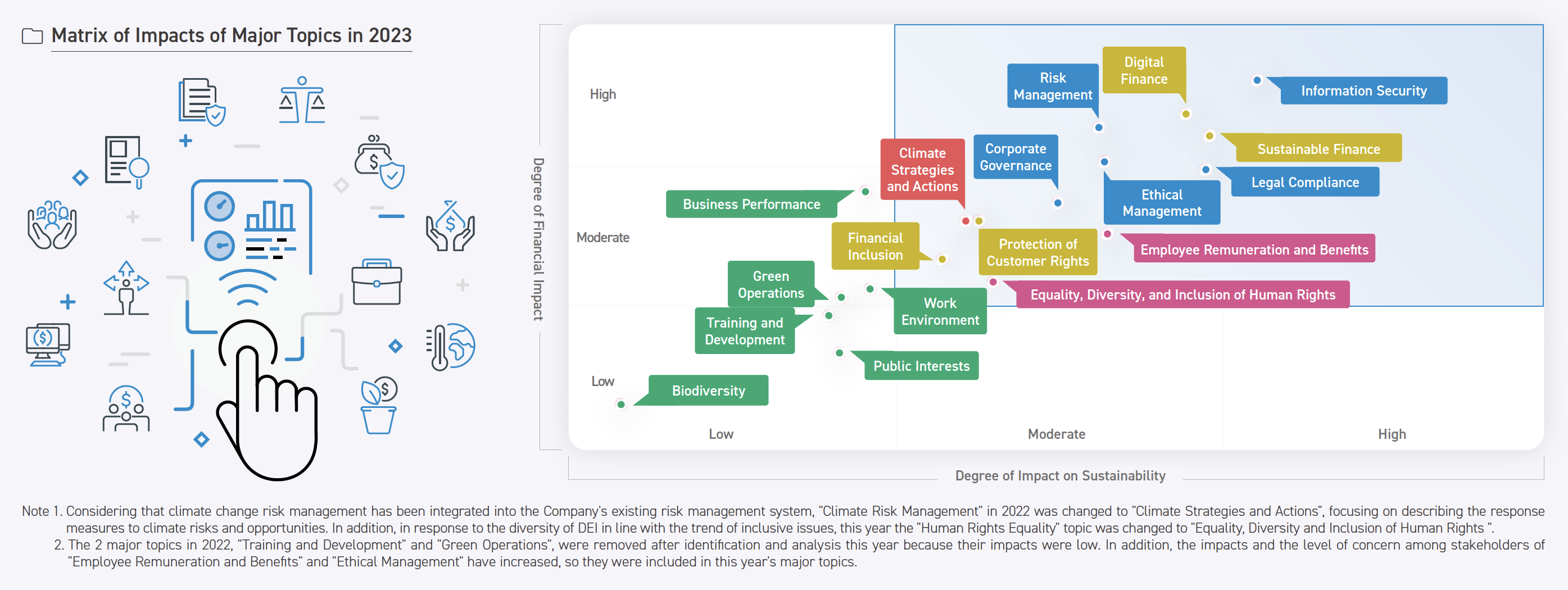
Material Topics and Management Approach
TCFHC has set up management approach for identified material topics to ensure impacts on the operation and stakeholders by these topics can be effectively managed through implementation of policy, injection of resources, and management of performance.

